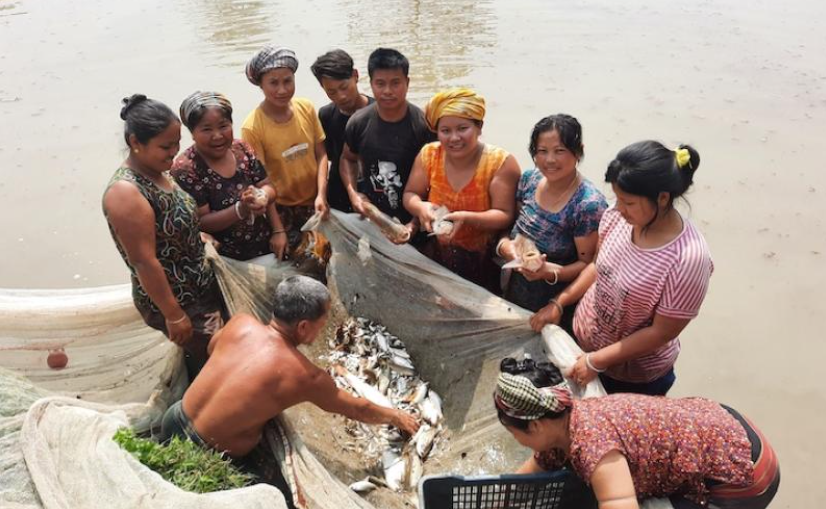In this Article
The establishment of women-led fish harvesting groups in Bandarban, Bangladesh, has provided affordable fish harvesting services to local fish farmers, increasing their income and livelihoods.

Women have significant roles along the aquaculture value chain. According to World Bank estimates, women perform roughly 1.4 million of the 17.8 million jobs in the industry. Women work in aquaculture at nearly every level, yet they are underrepresented in fish harvesting.
Funded by the United States Agency for International Development (USAID), WorldFish, in collaboration with two non-governmental organizations (NGOs), established three women-led fish harvesting groups in Bandarban. The goal was to boost local fish farming and empower women in the community. The first group, formed in Rowangchhari, Bandarban, received training in fish harvesting and post-harvest technologies, along with a fishing net on a cost-share basis. Tahzingdong, another national NGO, established the other two harvesting groups.
Since obtaining the fishing net, the women-led fish-harvesting groups have been offering other farmers reasonably priced harvesting services. Farmers have been able to profitably sell their fish several times over, resulting in a consistent supply of affordable fish to satisfy the local demand. The group has started renting out its fishing net to other harvesting groups and receives an average of six harvesting assignments each month.
In addition to boosting farmer’s income and livelihoods, supporting fish harvesting organizations encourages the consumption of nutrient-rich fish, which is crucial for enhancing family nutrition. Thus, it is essential to acknowledge the important contributions of women in the aquaculture industry and support their initiatives to create an inclusive and equitable society.
Reference: WorldFish (2023, March 28). Mainstreaming women’s participation in aquaculture for sustainable livelihoods. Retrieved April 3, 2024 from https://worldfishcenter.org/blog/mainstreaming-womens-participation-aquaculture-sustainable-livelihoods




